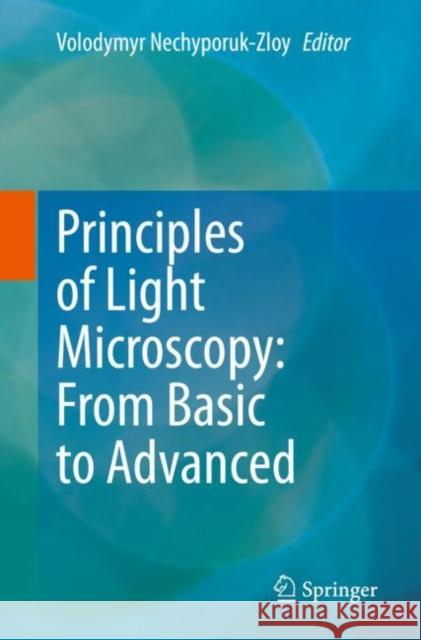Principles of Light Microscopy: From Basic to Advanced » książka
Principles of Light Microscopy: From Basic to Advanced
ISBN-13: 9783031044762 / Angielski / Miękka / 2022 / 324 str.
This textbook is an excellent guide to microscopy for students and scientists, who use microscopy as one of their primary research and analysis tool in the laboratory.The book covers key microscopy principles and explains the various techniques such as epifluorescence microscopy, confocal/live cell imaging, SIM/light sheet microscopy, and many more. Easy-to-understand protocols provide helpful guidance for practical implementation in various commercially available imaging systems. The reader is introduced to histology and further be guided through advanced image acquisition, classification and analysis.The book is written by experienced imaging specialists from the UK, other EU countries, the US and Asia, and is based on advanced training courses for master students and PhD students. Readers are not expected to be familiar with imaging and microscopy technologies, but are introduced to the subject step by step. This textbook is indented for biomedical and medical students, as well as scientists and postdocs who want to acquire a thorough knowledge of microscopy, or gain a comprehensive overview of modern microscopy techniques used in various research laboratories and imaging facilities.Chapter 4 is available open access under a Creative Commons Attribution 4.0 International License via link.springer.com.
This textbook is an excellent guide to microscopy for students and scientists, who use microscopy as one of their primary research and analysis tool in the laboratory. The book covers key microscopy principles and explains the various techniques such as epifluorescence microscopy, confocal/live cell imaging, SIM/light sheet microscopy, and many more. Easy-to-understand protocols provide helpful guidance for practical implementation in various commercially available imaging systems. The reader is introduced to histology and further be guided through advanced image acquisition, classification and analysis.The book is written by experienced imaging specialists from the UK, other EU countries, the US and Asia, and is based on advanced training courses for master students and PhD students. Readers are not expected to be familiar with imaging and microscopy technologies, but are introduced to the subject step by step. This textbook is indented for biomedical and medical students, as well as scientists and postdocs who want to acquire a thorough knowledge of microscopy, or gain a comprehensive overview of modern microscopy techniques used in various research laboratories and imaging facilities.
Chapter 4 is available open access under a Creative Commons Attribution 4.0 International License via link.springer.com.











